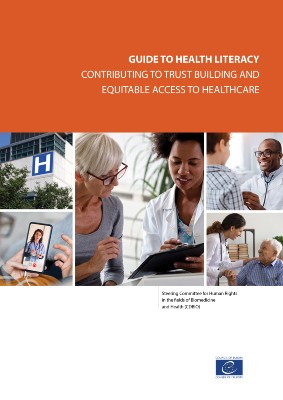Health Literacy
Conference on Health literacy and human rights
5 December 2024 | Rome, Italy

Guide to health literacy - Contributing to trust building and Equitable access to healthcare

With focus on the health literacy needs of individuals and the corresponding responsibilities of health systems, the guide aims to be an informative online resource, illustrated by good practices and tools. It contributes to building trust and equitable access to healthcare by suggesting ways in which decision-makers and health providers can implement health literacy at various individual, organisational, and political levels.
Guide on Health Literacy
Available in : English - French - Italian - Greek - Serbian - Lithuanian - Hungarian - Romanian - Romani - Latvian - Armenian
Combating health disparities created by social and demographic changes in Council of Europe member States
There is concern that existing healthcare resources are less accessible to certain patient populations because of their particular social circumstances which can make it a challenge for them to access, for example, valid health information and appropriate care. More specifically, the issue of equitable access to healthcare for persons in vulnerable situations is an enduring challenge for member states. For instance, access to clinical trials and innovative treatments and healthcare technologies often depends on information found on the internet and social media which may be more difficult for them to glean. Combating such health disparities is therefore important, for instance by making healthcare services and resources more accessible and by training healthcare professionals to ascertain their level of health literacy and capacity to participate in decision-making.









